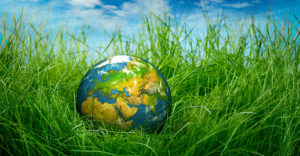This is the third Earth Day we have noted since Donald Trump became president.
Yes, the two elements are related.
There used to be a time when presidents of both parties would salute efforts to save our planet from ourselves. Donald Trump took office in January 2017 and immediately began dismantling environmental regulations and removing this country from a key worldwide environmental initiative.
He pulled the United States out of the Paris Climate Accord. Then he knocked aside rules and regulations limiting carbon emissions; he has sought to open up public land to fossil fuel exploration; he has downplayed the exploration of alternative energy sources; Trump dismisses openly the effects of climate change.
Despite all of that, the sun rose this morning. It will set tonight. The cycle will continue.
That’s the good news.
The bad news is that the president continues to ignore the cause of climate change/global warming. He calls it a “hoax.” It is no such thing. It’s real. It needs to be dealt with seriously. We need presidential leadership to take command.
It was on the watch of President Nixon, a Republican, that the nation formed the Environmental Protection Agency in 1970. Republicans and Democrats for most of the time since then have embraced the EPA’s mission.
Is this the end of life as we know it? No. However, we need to pay attention to what’s happening out there. Earth’s temperatures are rising; the polar ice caps at both ends of the planet are shrinking; polar habitat is endangered; storms are becoming more frequent and more ferocious; human beings who live along our coasts are imperiled.
We have to care for this planet. It’s only one we have.
Happy Earth Day . . . even to you, Mr. President.
